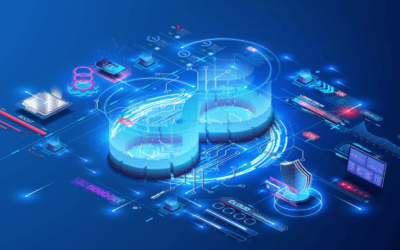Staying in the Know
Today, determining the effectiveness of an organization’s cybersecurity operations is challenging to say the least, especially with the rate at which new threats emerge each year. It demands that organizations stay up to date on emerging threats and take action to identify any potential gaps within their current solutions and policies to mitigate their risk.
Already in 2022, we have seen an emergence of new threats to organizations and their data. Specifically in the form of new methods of hacking. These include Denial of Service(DoS), Internet of Things (IoT), external remote services, and evolving phishing attacks.
Denial of Service (DoS)
A Denial of Service (DoS) attack occurs when multiple systems flood the bandwidth or resources of a targeted system. This is usually done to one or more servers. This attack will overwhelm the system, making it unable to defend or trace where the attack is coming from, allowing the hacker to launch other malware attacks at the targeted network.
Preventing this type of attack:
- Implement anti-DoS hardware and software
- Move to the cloud versus on-premise
- Scale your network bandwidth to be larger
- Create a response plan for this type of attack
- Outsource your DDoS protection
Internet of Things (IoT)
An Internet of Things (IoT) attack is an attack on any device or network that connects to the internet. This type of attack includes infecting your devices with malware or breaking into your systems using loopholes, for example, unoptimized user permission.
Preventing this type of attack:
- Secure all company IoT devices and routers with strong passwords
- Use antivirus and firewall protection on all devices
- Run security audits regularly
- Stay with current software and app updates
External Remote Services
An external remote services hack refers to the increase in remote work in our society, which has become a new way for hackers to gain access through remote access services. In this type of attack, hackers will compromise a VPN, steal RDP credentials, or target Virtual Network Computing (VNC), to gain access to your mobile device or computer.
Preventing this type of attack:
- Set policies for specific allowed and blocked applications
- Use two-factor authentication
- Provide company managed equipment
- Stress employees to carefully review external links and files
- Disable setting tabs in internet search engines
- Restrict access to local drives on a remote device
- Establish and communicate clear guidelines
- Remove admin privileges
Evolving Phishing
Phishing attacks are nothing new, but the tactics are evolving and getting better. As you may already know, phishing attacks typically occur within someone’s email. Someone is sent an email that takes them to another page, in order to steal their data and information. A new popular tactic we are seeing today is hackers using relevant stories in the news to entice targets to open emails.
Preventing this type of attack:
- Set email filters
- Set your email server settings to utilize all email security protocols
- Add anti-phishing add ons to your browsers
- Educate employees on what phishing emails look like
Overall, for organizations to know whether their cybersecurity solutions are effective, they must stay on top of the newest emerging and evolving threats. Cybersecurity is not a set-and-forget solution and organizations must continually pursue their cybersecurity each and every year. To learn more about cybersecurity solutions for your business, request a demo with us.




